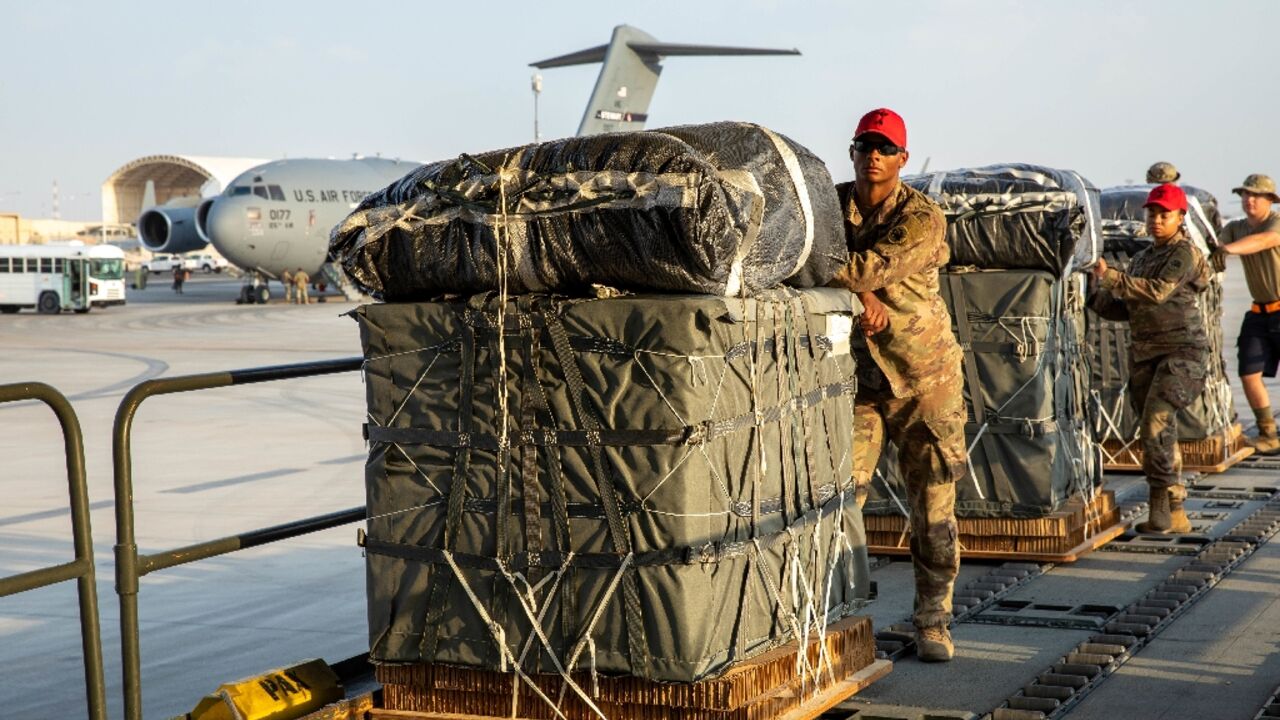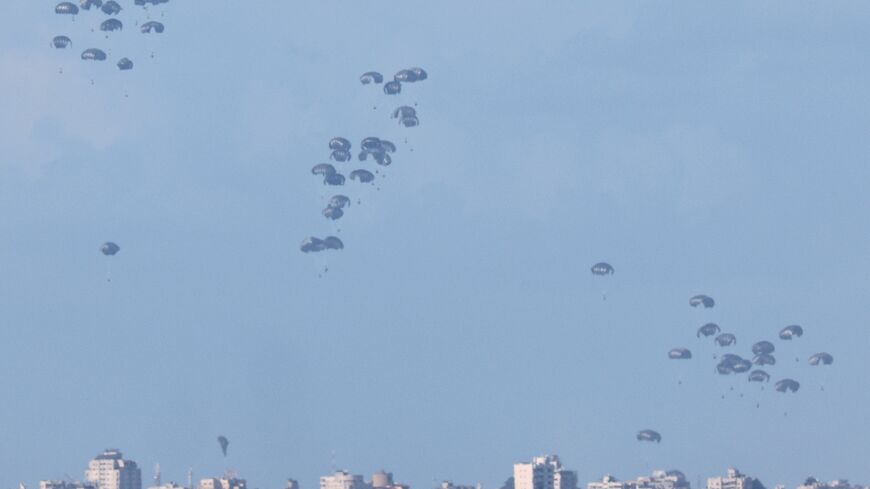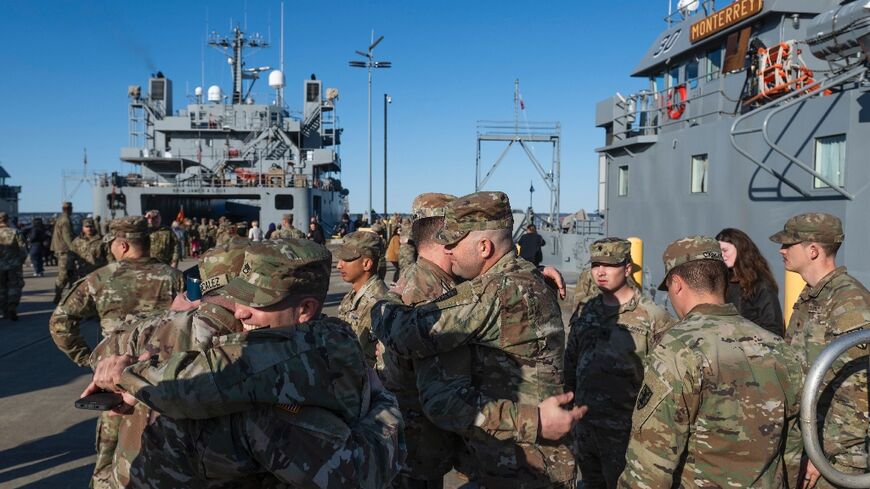Up to 60 days for US to establish Gaza port, Pentagon says

The US plan to establish a temporary port for aid deliveries to Gaza will take up to 60 days to carry out and will likely involve more than 1,000 American personnel, the Pentagon said Friday.
US President Joe Biden announced the plan the previous night during his State of the Union address, in which he pleaded with Israel to let more assistance into the blockaded territory even as he defended its military operation against Hamas.
Israel's delay of deliveries of aid by ground has also led United States to join other countries in airdropping assistance, with Washington conducting its fourth drop of the month on Friday.
The United States will "establish a temporary offshore maritime pier that allows for shipping vessels to transfer cargo to smaller vessels to transport and offload cargo to a temporary causeway for the delivery of humanitarian aid to Gaza," Pentagon spokesman Major General Pat Ryder told journalists.
"We anticipate that it'll take over 1,000 US forces to participate in building this capability" and "up to 60 days in order to deploy the forces and construct the causeway and the pier," Ryder said.
Once established, the new facility "could provide more than two million meals to the citizens of Gaza per day," he said, adding that "there will be no US forces on the ground in Gaza" as part of the effort, in which Washington will be "working with regional partners."
- Fourth US airdrop -
Earlier on Friday, the US Central Command announced that "A US C-130 dropped over 11,500 meal equivalents, providing life-saving humanitarian assistance in northern Gaza" in a joint operation with Jordan.
But highlighting the danger of delivering aid by air, a medic at Gaza's largest hospital said Friday that a drop had killed five people and wounded 10.
A US defense official told AFP that "the US did not cause the fatalities during our airdrop in Gaza," while a Jordanian military source said none of the kingdom's four aircraft that took part in the operation were involved in the fatalities.
Gaza has faced relentless bombardment by Israel since Hamas launched a cross-border attack on October 7 that resulted in about 1,160 deaths, most of them civilians, according to an AFP tally based on official Israeli figures.
Israel's retaliatory operations in Hamas-controlled Gaza have killed more than 30,800 people, mostly women and children, according to the territory's health ministry.
The amount of aid brought into Gaza by truck has plummeted during five months of war, and Gazans are facing dire shortages of food, water and medicine.
The United States launched its first airdrop of food into Gaza on March 2, providing more than 38,000 meals, then dropped more than 36,000 on Tuesday and more than 38,000 on Thursday.
But the number of people in need of aid in Gaza is much greater than can be fed by drops alone.






